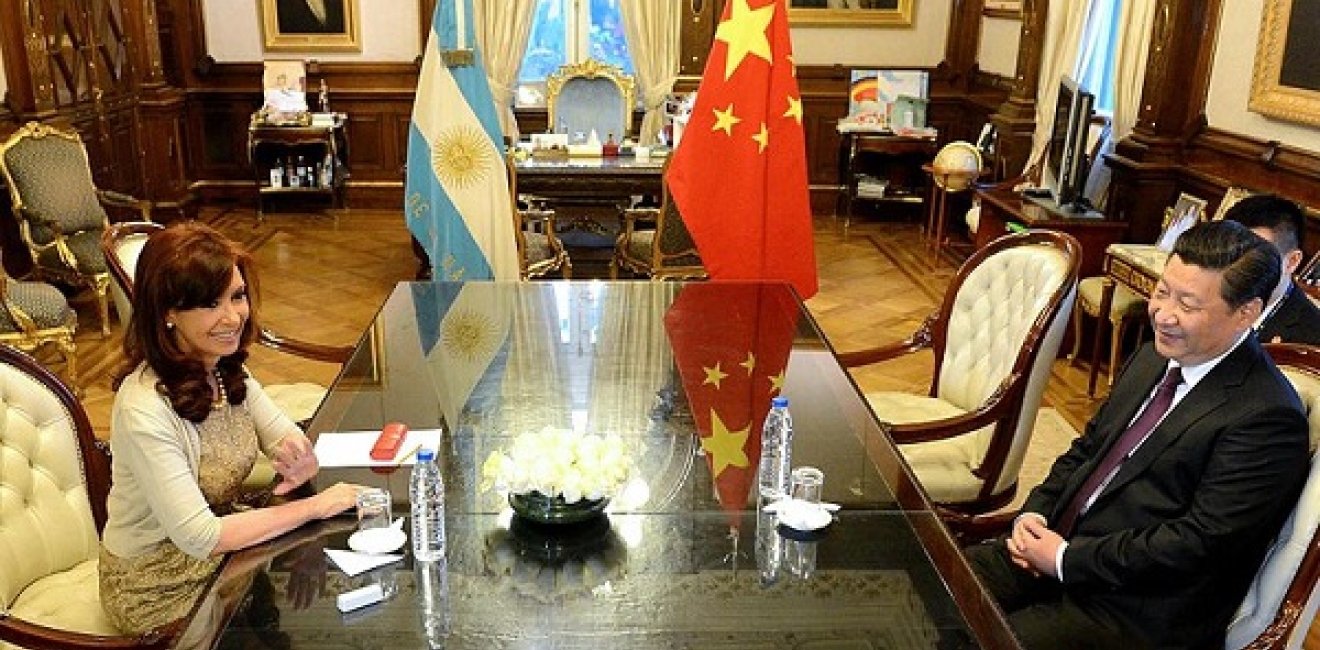
A blog of the Latin America Program
U.S. analysis of China’s activities in Latin America often interprets Beijing’s expanding economic presence as the leading edge of a geopolitical strategy with ominous security implications. That includes not only China’s well-documented lending to leftist leaders in Venezuela and Ecuador, but also its financial lifeline to Argentina’s last president, Cristina Fernández de Kirchner.
At times, China has used the region to advance its broader political agenda, stripping Taiwan of several diplomatic allies in recent years, including Panama, the Dominican Republic and El Salvador. But by and large, China’s critics in Latin America have wielded little evidence that Beijing’s presence is shaped by security considerations. Rather, its more likely motivations appear to be efforts to seek new sources of natural resources, such as energy and copper; new opportunities to purchase soy and other foods; new markets for Chinese goods; new projects for Chinese state-owned enterprises; and new uses for China’s excess steel and labor.
That has left China hawks in the White House largely limited to criticizing China’s “debt trap diplomacy” in Latin America, with warnings of a looming regional debt crisis brought about by China’s unconditional loans to free-spending and often corrupt governments.
In Argentina, however, China has provided skeptics with evidence that Beijing’s interests in Latin America are perhaps not entirely commercial after all.
In 2012, Ms. Fernández de Kirchner approved a controversial Chinese deep space tracking facility in Argentina’s Neuquén province. For Ms. Fernández de Kirchner’s government, the deal was a natural extension of a rapidly deepening relationship at a time when Argentina was diplomatically and economically isolated. She apparently accepted China’s reassurances that the facility, controlled by China’s military, was designed to track satellites in preparation for a Chinese mission to the moon.
But the deal, negotiated in secret, was a lightning rod from the start, both inside and outside Argentina.
In Buenos Aires, the top Peronist in the Senate, Miguel Pichetto, recently proposed a commission to investigate the space facility, and demanded “acceso irrestricto a las instalaciones de seguimiento terrestre, comando y adquisición de datos en el territorio de la provincia de Neuquén.” In Washington, meanwhile, the U.S. government has never accepted China’s pledge to use the facility exclusively for civilian purposes.
Ms. Fernández de Kirchner’s successor, Mauricio Macri, attempted to address concerns at home by negotiating an amended agreement with Beijing. But criticism of the complex has only ramped up in the United States, where the project confirms the worst fears about China’s security agenda in Latin America, just as Beijing’s seizure of a Sri Lankan port deepened concerns that Chinese lending in developing countries is designed to provoke credit defaults.
Last July, The New York Times reported extensively on the Chinese space capabilities in Neuquén, in an article headlined, “From a Space Station in Argentina, China Expands Its Reach in Latin America.” “They are deploying these capabilities to blunt American military advantages, which are in many ways derived from space,” Frank A. Rose, an assistant secretary of state for arms control in the Obama administration, told The New York Times.
In congressional testimony in February, Admiral Craig Faller, the commander of the U.S. Southern Command, articulated similar worries, saying his main concern was that China “may have the ability to monitor and potentially target U.S., allied and partner space activities” from its Argentine facility. China already possesses anti-satellite missiles and the capacity to jam satellites, fueling Admiral Faller’s fears.
Suddenly, remote Neuquén, known previously only for its colossal reserves of unconventional oil and gas, was on the U.S. security agenda. The United States has now announced plans to build an emergency operations center in the province. Officially, the $1.3 million facility, located by the airport, is to be operated by provincial authorities and designed to warehouse supplies such as tents and cots. But observers, noting the Pentagon’s leadership of the project, regard its timing and location as more than a little coincidental.
Either way, perceptions that Argentina is an economic – and potentially security – battleground between the United States and China seem to be benefiting Buenos Aires. Last fall, as President Xi Jinping prepared for a state visit to Argentina following the G-20 summit, the U.S. Overseas Private Investment Corporation signed deals that could bring as much as $3 billion in new investment to Argentina.


Latin America Program
The Wilson Center’s prestigious Latin America Program provides non-partisan expertise to a broad community of decision makers in the United States and Latin America on critical policy issues facing the Hemisphere. The Program provides insightful and actionable research for policymakers, private sector leaders, journalists, and public intellectuals in the United States and Latin America. To bridge the gap between scholarship and policy action, it fosters new inquiry, sponsors high-level public and private meetings among multiple stakeholders, and explores policy options to improve outcomes for citizens throughout the Americas. Drawing on the Wilson Center’s strength as the nation’s key non-partisan policy forum, the Program serves as a trusted source of analysis and a vital point of contact between the worlds of scholarship and action. Read more


Argentina Project
The Argentina Project is the premier institution for policy-relevant research on politics and economics in Argentina. Read more

Explore More in Weekly Asado
Browse Weekly Asado
Dengue Haunts South America’s Summers

Lessons from Costa Rica’s Economic Transformation

Women and Latin America’s Digital Revolution

